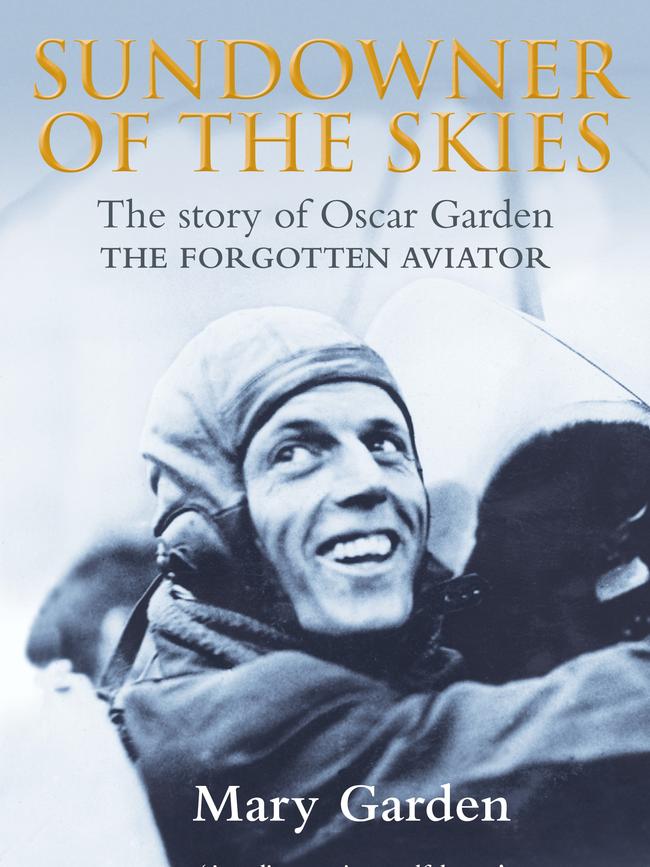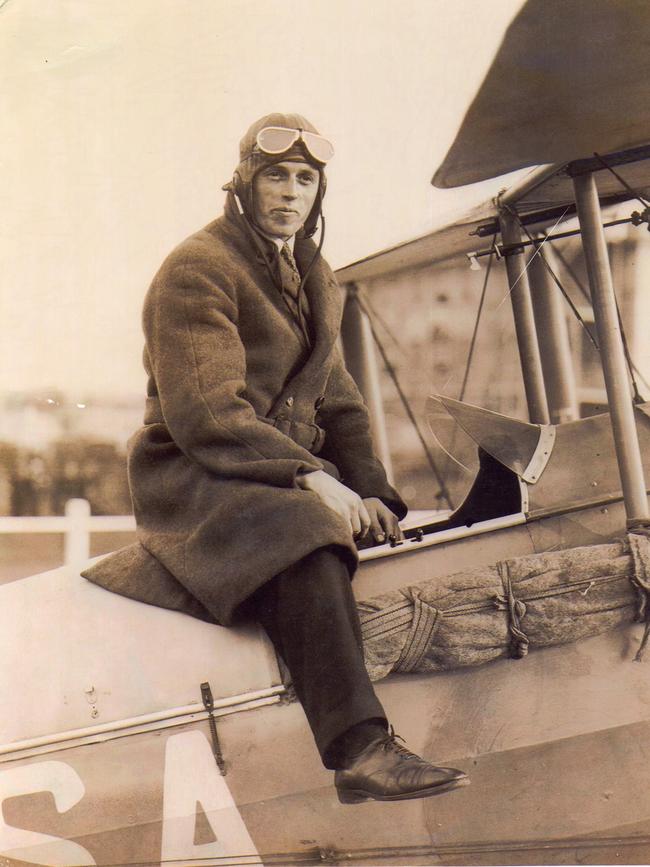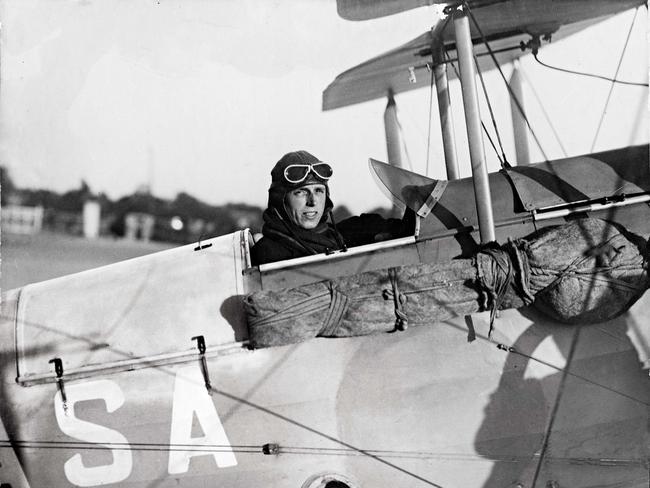The youngest man to complete an England-Australia solo flight
Oscar Garden was a complex man but he created aviation history with a great solo flight from England to Australia. His daughter Mary Garden reveals the story of his great adventure and the difficulties of family life with him
Dawn broke over Croydon Airport in South London on October 16, 1930 as a Scottish-born New Zealander Oscar Garden revved the noisy engine of his second-hand Gipsy Moth eager to get going on the ultimate joy flight.
The aircraft had less power than most modern motorbikes and the 27-year-old novice pilot from Christchurch was planning to fly it all the way to Australia.
It was a time when long distance flights were the equivalent of moon landings four decades later, though during the golden age of aviation even inexperienced pilots were willing to set off into the wild blue yonder hoping that their courage would compensate for a lack of experience or state-of-the art technology.

In Sundowner of the Skies, Maleny author Mary Garden profiles her dad, a gloriously flawed adventurer who in 1930 was embarking on his great journey after just three months as a pilot and a mere 40 hours’ solo flying experience.
His longest flight had only been about five hours, but now he was planning to pilot the Gipsy Moth for up to 16-hours a day for more than two weeks in a gruelling 20,000 kilometre marathon that had claimed better pilots in better aircraft.
Queenslanders Bert Hinkler and Charles Kingsford Smith had both set records for the England to Australia flight but both would pay with their lives when pushing too hard in subsequent attempts.

When Oscar’s flying instructor, First Officer Reginald James Bunning, heard about his plan he said the daring young man didn’t have a hope in Hades.
Only two weeks before Oscar taxied along the grass runway at Croydon ready for take-off, one of Hinkler’s friends Jack ``Buller’’ Matthews, revealed to the British press what flying to Australia could be like.
On 20 June, 1930, he and Eric Hook had taken off in a Gipsy Moth from Lympne in Kent bound for Australia looking to make their name as trans-continental aviators after receiving their pilots licences just a few days earlier.
They flew through monsoonal rain over the Pegu Range in Burma but crashed into a huge clump of bamboo when the Moth’s engine became waterlogged. Lost in the jungle, Hook became ill with fever and begged Matthews to go on alone to find help. Covered in mud and muck and blood, Matthews finally found a village and organised a search party to bring back his friend.

Wading for days through swollen rivers and creeks, the searchers finally found Hook’s body washed up 12 kilometres from where Matthews had left him. He had been half eaten by a tiger or leopard.
So it was, with that report fresh in the English news, that Oscar Garden waved goodbye to the only person at Croydon Airport farewelling him, a man from the Vacuum Oil Company, which had agreed to provide fuel along the route to Australia.
Oscar did his best to keep his flight a secret because he did not want anyone trying to talk him out if it.
Two weeks before take-off he had visited his mother Rebecca but did not divulge his plan to join the great aviators of history. When Rebecca finally heard about the solo flight she told a newspaper she was worried because Oscar did not have a hat with him.
Oscar got off to a bad start and not long after take-off was forced down by bad weather before leaving England.
He eventually survived all manner of mishaps, several forced landings and a crash in near darkness in India.
Eighteen days after leaving Croydon he landed at nightfall at Wyndham Aerodrome in the Kimberley Region of Western Australia. His first request was for a cigarette.
He became only the fifth man to complete the England-Australia flight solo and was the youngest and most inexperienced, though Kingsford Smith had done it in almost half the time.
Mary Garden writes that her father became chief pilot and operations manager of the fledgling airline Tasman Empire Airways Limited, the forerunner to Air New Zealand but left in 1947, three years before she was born, to become a tomato grower.
He never flew again and rarely spoke of his aviation adventures.
“He seldom talked to me about anything,’’ she says, “except to bark orders. He commanded our family as if he was still the captain of a flying boat. When he died in 1997 I had left it too late to talk to him about his life.’’
Sundowner of the Skies by Mary Garden; New Holland Publishers, $30
Originally published as The youngest man to complete an England-Australia solo flight


